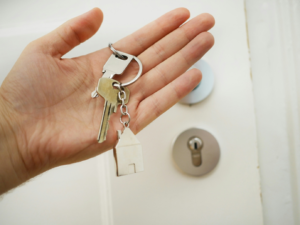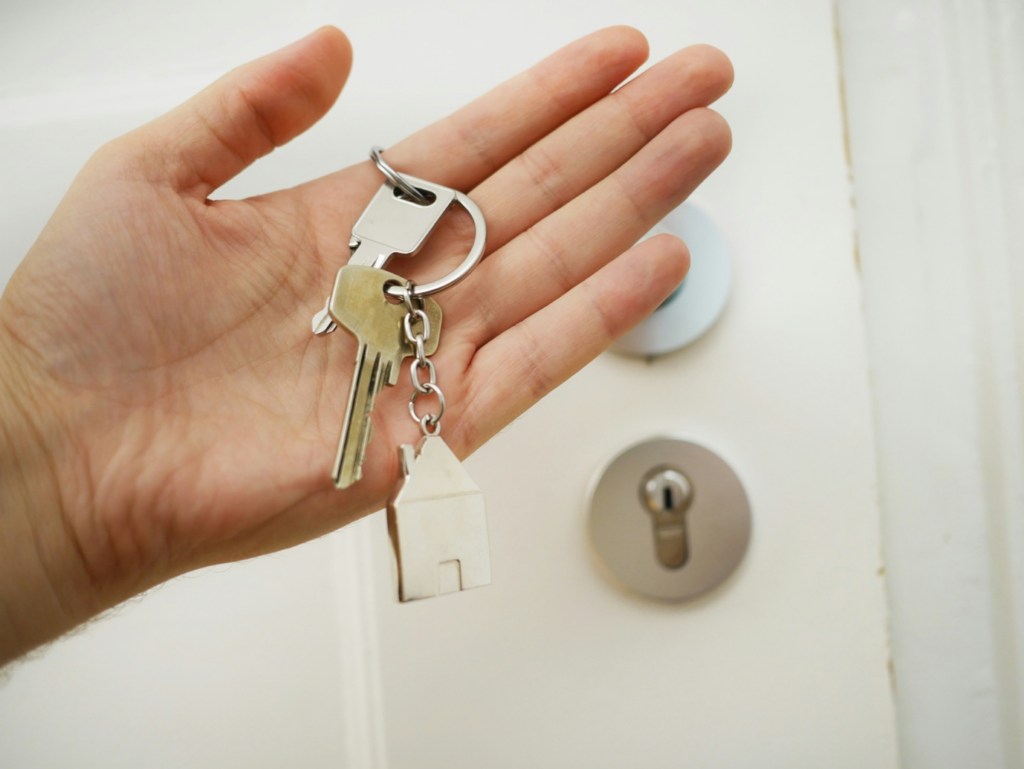 Our comprehensive guide breaks down everything from market trends to final walkthrough tips.
Our comprehensive guide breaks down everything from market trends to final walkthrough tips.
Buying your first home is one of the most exciting milestones in life, but it can also be daunting. With the correct information and preparation, you can confidently navigate the real estate market and find the perfect home. This guide will walk you through the entire home-buying process, from understanding market trends to settling into your new home.
Analysing Market Trends
Current Market Conditions
The real estate market is constantly evolving. As a new buyer, staying informed about current market conditions is essential. Recent trends indicate a surge in suburban home purchases driven by remote work flexibility.
Buyers also prefer properties with more outdoor space and home office capabilities. Staying updated with these trends can help you align your search with the market dynamics. This includes knowing whether it is a buyer’s or seller’s market, understanding average home prices, and keeping an eye on interest rates.
Future Predictions
While no one can predict the future with certainty, experts can provide educated guesses about market trends. Look for reports and analyses from reputable sources to understand where the market might be heading.
Setting a Budget
Calculating Affordability
Before you start house hunting, you must know how much you can afford. This involves calculating your income, debts, and expenses to determine a realistic budget. Use online calculators to help you with this process.
Hidden Costs to Consider
Remember that the sticker price of a home is not the only cost. Factor in property taxes, home insurance, maintenance, and potential homeowner association (HOA) fees. These hidden costs can add up quickly and affect your overall budget.
Securing Financing
Mortgage Options
There are various mortgage options available, each with its pros and cons. Fixed-rate mortgages offer stability, while adjustable-rate mortgages may start with lower payments. Research different types and choose the one that best suits your financial situation.
Pre-Approval Process
Getting pre-approved for a mortgage gives you a clear idea of how much you can borrow and shows sellers that you are a serious buyer. This process involves a lender evaluating your financial history and credit score.
Identifying Your Needs
Must-Have Features
Make a list of features that are non-negotiable for your new home. This might include the number of bedrooms, a backyard, or a home office. Knowing your must-haves will help you narrow down your options.
Location Considerations
Location is crucial in real estate. Consider factors like proximity to work, school districts, and amenities. Think about your lifestyle and what locations will best support it.

Prepare yourself with expert advice and make your home buying journey smooth and successful!
House Hunting Tips
Online Searches
The internet is a powerful tool for house hunting. Use real estate websites to browse listings, view photos, and read descriptions. Many sites also offer virtual tours, which can be a great way to narrow down your choices
Working with a Real Estate Agent
An excellent real estate agent can be invaluable. They have local market knowledge; can help you find homes that meet your criteria and can guide you through buying. Make sure to choose an agent who understands your needs and communicates well.
Crafting a Competitive Offer
Negotiation Strategies
When you find the perfect home, making a competitive offer is crucial. This involves more than just the price. Consider the terms and conditions, such as the closing date and any contingencies. Be prepared to negotiate with the seller to reach a mutually beneficial agreement.
Contingencies and Inspections
Importance of Home Inspections
Home inspections are a critical part of the buying process. They can reveal potential issues that may not be visible during a regular showing. Always hire a qualified inspector to ensure the home is in good condition
Common Contingencies
Contingencies protect you as a buyer. Common ones include financing contingencies, home inspection contingencies, and appraisal contingencies. Understand each type and how they can affect your purchase.
Final Walkthrough
What to Look For
Before closing, you will have a final walkthrough of the home. This is your chance to ensure that all agreed-upon repairs have been made and that the home is in the expected condition. Check for any last-minute issues that need to be addressed.
Closing Costs
Breakdown of Costs
Closing costs can be significant, typically ranging from 2% to 5% of the home’s purchase price. These can include loan origination fees, title insurance, and attorney fees. Knowing what to expect can help you budget accordingly.
Saving Tips
Look for ways to reduce closing costs, such as shopping around for services or negotiating with the seller to cover some expenses. Every bit saved can help your overall financial situation.
Preparing for Move-In Day
Packing Tips
Packing for a move can be overwhelming. Start early and tackle one room at a time. Label boxes clearly and keep an inventory to ensure nothing gets lost. Consider hiring professional movers for a smoother process.
Scheduling Utilities
Remember to schedule the utilities setup for your new home. This includes electricity, water, gas, internet, and cable. Doing this in advance ensures you have essential services when you move in.
Settling into Your New Home
Essential Services Setup
Once in your new home, set up essential services like waste collection and security systems. Familiarise yourself with the neighbourhood and find local providers for healthcare and groceries
Getting to Know the Neighbourhood
Take time to explore your new community. Meet your neighbours, visit local parks, and try out nearby restaurants. Connecting with your new surroundings can make the transition smoother and more enjoyable.
Final Thoughts on Home Buying
Buying a home is a significant investment and a major life event. With thorough preparation and the right mindset, you can make informed decisions and find a home that fits your needs and budget. Remember, the key to a successful home purchase is to stay informed, be patient, and seek professional advice when needed.
FAQs
Q1: What is the first step in buying a home?
The first step is to determine your budget and get pre-approved for a mortgage. This will give you a clear idea of how much you can afford and show sellers that you are a serious buyer.
Q2: How can I improve my chances of getting my offer accepted?
Making a competitive offer, being flexible with the closing date, and having a pre-approval letter can improve your chances of accepting your offer.
Q3: What should I look for during a home inspection?
During a home inspection, look for structural issues, plumbing and electrical systems, roofing problems, and any signs of water damage or pest infestations.
Q4: How much should I save for closing costs?
Closing costs typically range from 2% to 5% of the home’s purchase price. Budgeting for these expenses is a good idea to avoid surprises.
Q5: What are some tips for first-time homebuyers?
Some tips include setting a realistic budget, researching different mortgage options, working with a reputable real estate agent, and being patient



